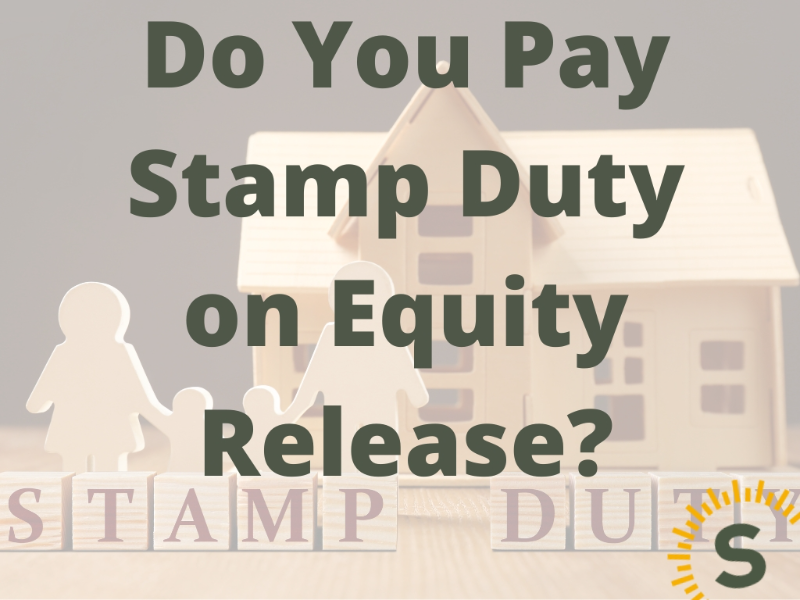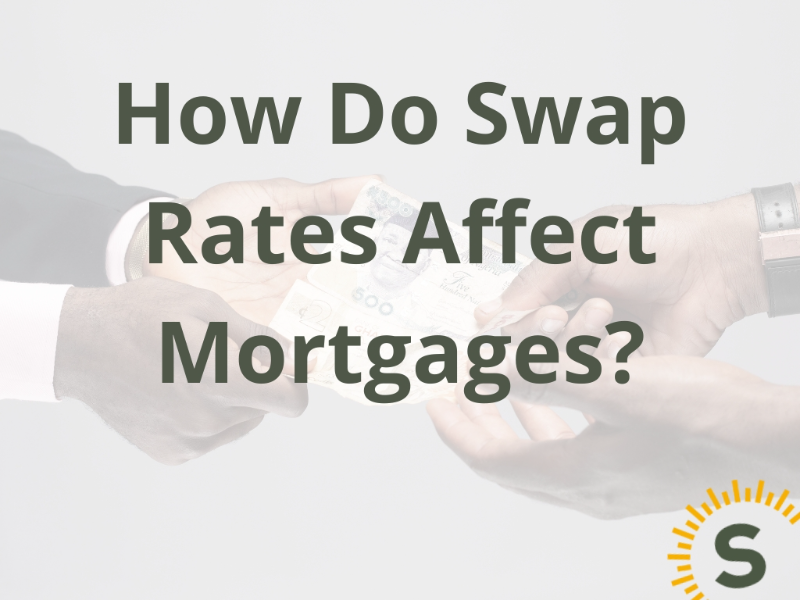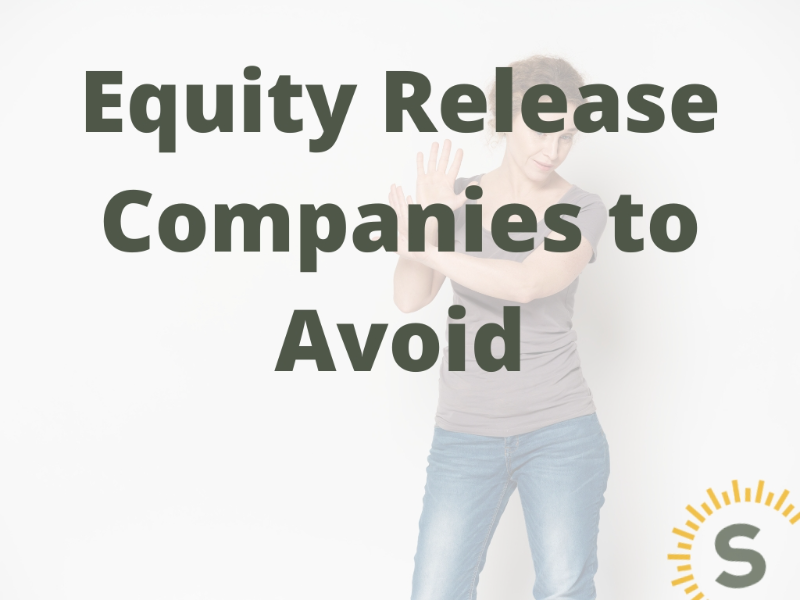
If you're contemplating releasing equity from your home, you're going to need to know all the costs that are involved to make your decision. Not many people have prior experience of equity release. If you compare the costs of releasing equity to buying a home, one of the costs you may be wondering about is stamp duty. Do you pay stamp duty on equity release? The simple answer is no because you're not acquiring land or property. In fact, you may be doing quite the opposite.
In this insight, I'll explain why that is and how you can take the next step forward with releasing equity.
No, you don't pay stamp duty when on equity release because it doesn't involve buying or selling property. When you complete equity release you are actually taking a loan, or selling part of your property. None of these transactions involve paying stamp duty.
Stamp duty is a tax that is typically paid on the transfer of property or land ownership. It is a tax that is commonly associated with property transactions, such as when buying a house or land.
Equity release, on the other hand, is a financial product that allows homeowners, typically those who are retired, to release some of the equity tied up in their property without having to move out. It can be done through methods like a lifetime mortgage or a home reversion plan.
However, it's essential to note that the rules and regulations regarding stamp duty can change, and if the government were to introduce a tax for selling property, the rules around equity release and stamp duty may change.
You don't pay stamp duty on equity release at present because you are not buying land or property. Only property transactions where you acquire a first or additional property require a stamp duty payment.
You would generally only pay stamp duty on equity release if you release equity from one property (which is usually tax-free) to purchase another property, which may indeed require you to pay stamp duty on the new property acquisition.
Let's say you own a home (Property A) and decide to release equity from it through an equity release scheme. This process usually doesn't incur stamp duty because you're not selling or transferring ownership of Property A.
However, you use the released equity to buy a new property (Property B). Since you're purchasing Property B, you would typically be subject to stamp duty on the value of Property B, just like any other property buyer. This is because the purchase of Property B is a separate transaction from the equity release on Property A, and stamp duty is usually applicable to property acquisitions.
When you're thinking about tapping into your home's equity, it's vital to look ahead. Changes in rules and laws could affect how equity release works, as well as how much you pay in taxes. The financial and property rules can change over time, which might alter how much equity release costs you. Stay updated and consider these potential changes when making financial decisions.
Getting started with equity release is a significant financial decision that can provide you with access to the equity tied up in your home. This can be a valuable source of funds for retirees or those looking to enhance their financial situation. However, it's a complex process that requires careful consideration and professional advice. Here's a step-by-step guide on how to get started with equity release:
Understand What Equity Release Is: Begin by educating yourself about what equity release entails. It's a financial product that allows homeowners aged 55 and older to access the wealth tied up in their property without having to sell it. Equity release options typically come in two main forms: lifetime mortgages and home reversion plans. Each has its own features and implications.
Determine Your Eligibility: To qualify for equity release, you need to meet certain criteria, including your age, property value, and location. These criteria may vary among different equity release providers. Ensure that you meet these requirements before proceeding.
Research Equity Release Providers: Explore various equity release providers in your region. Consider their reputation, track record, and the specific products they offer. It's important to work with a reputable and regulated provider to ensure your financial security.
Seek Professional Advice: This step is crucial. Consult with a Mortgage adviser (IFA) who specialises in equity release. They can help you understand your options, assess your financial situation, and provide personalised recommendations. Make sure the advisor is accredited and authorised by relevant regulatory bodies.
To answer the question, Do You Pay Stamp Duty on Equity Release? No, you don't. However, this rule could always change if future tax laws change, potentially moving stamp duty from buyers to sellers. Specifically with a home reversion plan, where the transaction involves selling part or all of your property.

Stuart is an expert in Property, Money, Banking & Finance, having worked in retail and investment banking for 10+ years before founding Sunny Avenue. Stuart has spent his career studying finance. He holds qualifications in financial studies, mortgage advice & practice, banking operations, dealing & financial markets, derivatives, securities & investments.
 No minimum
No minimum  Leyland, Lancashire
Leyland, Lancashire No obligation consultation
No obligation consultation
 No minimum
No minimum  No obligation consultation
No obligation consultation
 No minimum
No minimum  Free Consultations
Free Consultations
 No minimum
No minimum  No obligation consultation
No obligation consultation
 No minimum
No minimum  Initial fee free consultation
Initial fee free consultation
 No minimum
No minimum  Initial fee free consultation
Initial fee free consultation
 £51,000+
£51,000+  Free Consultations
Free Consultations
 No minimum
No minimum  Initial fee free consultation
Initial fee free consultation
 £101,000+
£101,000+  Bishop's Stortford, Hertfordshire
Bishop's Stortford, Hertfordshire No obligation consultation
No obligation consultation
 No minimum
No minimum  Initial or Ongoing Consultation Fees
Initial or Ongoing Consultation Fees
 No minimum
No minimum  Initial fee free consultation
Initial fee free consultation
 No minimum
No minimum  Initial fee free consultation
Initial fee free consultation
 £51,000+
£51,000+  Sheffield, South Yorkshire
Sheffield, South Yorkshire No obligation consultation
No obligation consultation
 No minimum
No minimum  Newcastle-under-Lyme, Staffordshire
Newcastle-under-Lyme, Staffordshire Free Consultations
Free Consultations
 No minimum
No minimum  Free Consultations
Free Consultations
 No minimum
No minimum  No obligation consultation
No obligation consultation
 No minimum
No minimum  No obligation consultation
No obligation consultation
 No minimum
No minimum  Free Consultations
Free Consultations
 No minimum
No minimum  No obligation consultation
No obligation consultation
 No minimum
No minimum  Free Consultations
Free Consultations
 No minimum
No minimum  Coatbridge, Lanarkshire
Coatbridge, Lanarkshire Initial or Ongoing Consultation Fees
Initial or Ongoing Consultation Fees
 No minimum
No minimum  Initial or Ongoing Consultation Fees
Initial or Ongoing Consultation Fees
 £21,000 +
£21,000 +  Initial fee free consultation
Initial fee free consultation
 London, Greater London
London, Greater London No obligation consultation
No obligation consultation
 No minimum
No minimum  No obligation consultation
No obligation consultation





Our website offers information about financial products such as investing, savings, equity release, mortgages, and insurance. None of the information on Sunny Avenue constitutes personal advice. Sunny Avenue does not offer any of these services directly and we only act as a directory service to connect you to the experts. If you require further information to proceed you will need to request advice, for example from the financial advisers listed. If you decide to invest, read the important investment notes provided first, decide how to proceed on your own basis, and remember that investments can go up and down in value, so you could get back less than you put in.
Think carefully before securing debts against your home. A mortgage is a loan secured on your home, which you could lose if you do not keep up your mortgage payments. Check that any mortgage will meet your needs if you want to move or sell your home or you want your family to inherit it. If you are in any doubt, seek independent advice.